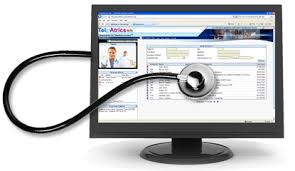 Healthcare Hits Hard and Dukes it Out With the FCC over TCPA
Healthcare Hits Hard and Dukes it Out With the FCC over TCPA
 Healthcare Hits Hard and Dukes it Out With the FCC over TCPA
Healthcare Hits Hard and Dukes it Out With the FCC over TCPA
The Federal Communications Commission (FCC) issued a Declaratory Ruling and Order (Declaratory Ruling)[1] on July 10, 2015 in response to 21 separate requests[2] seeking clarifications to the Telephone Consumer Protection Act (TCPA).[3] The Declaratory Ruling has acute implications for any organization that uses an autodialer or prerecorded messages to make non-emergency calls to wireless phones without obtaining the consumer’s prior express consent.
The healthcare industry got into the ring with the FCC and won important concessions to the TCPA further clarifying its governance with healthcare. After a hard-fought boxing match, the July 10th ruling will allow healthcare entities greater flexibility in communicating with their patients.
Overview
The TCPA, ratified in 1991, was created to protect consumers from uninvited telemarketing calls, faxes and text messages. TCPA identifies the requirements by which a business may promote its products and services to consumers. Unambiguously, the TCPA prohibits the use of automated dialing systems that use live operators and pre-recorded voice messages without obtaining the recipient’s prior consent.
The types of communications restricted by the TCPA are:
1. Auto-dialed calls: An auto-dialed call is a phone call, involving a live person or pre-recorded message, that is placed using an “auto-dialer,” or automatic-telephone-dialing-system, that can produce, store and call telephone numbers using a random or sequential number generator;
2. Robocalls calls: A robocall is a phone call that uses an “auto-dialer” system to deliver a pre-recorded telemarketing message; and
3. Text messages: A text message is sent via a short message service (SMS) and messages containing image, video and sound content that are called multimedia messaging service (MMS). The TCPA considered these types of communications “calls” and they have the same requirements as other calling formats.
On October 16, 2013, the FCC revised its TCPA guidelines; further restricting telemarketing calls.[4] Adjustment of the TCPA requires the prior written consent for most automated telemarketing communications, particularly those made to cellphones.
Since the healthcare industry is dissimilar to any other business or organization, the FCC’s July 10, 2015 Order outlines an assortment of healthcare-specific exemptions to the TCPA for some important healthcare calls.[5] These exemptions are restricted to a number of requirements and conditions and do not provide an overarching exemption to TCPA liability.
A critical clarification was addressed from a petition filed by the American Association of Healthcare Administrative Management (AAHAM) in October 2014 regarding “free, pro-consumer healthcare-related messages” and under what circumstances such messages are exempt from the TCPA’s requirement for prior expressed consent.[6] This petition sought clarification on exemptions that are currently found in the TCPA for calls subject to the Health Information Portability and Accountability Act (HIPAA).[7]
The HIPAA exemption in the TCPA regulations currently extends to advertising and marketing calls to cell phones and residential landline phone numbers. The exemption provides for calls that deliver a healthcare message made by or on behalf of a “covered entity” or its “business associate,” as those terms are defined in HIPAA and do not require the prior express written consent of the called party. What has been confusing is whether non-telemarketing calls (i.e., informational or transactional calls) that deliver healthcare messages require any type of consent at all. The FCC’s response to the AAHAM petition8 helps to answer that question.
AAHAM requested that the FCC clarify how calls can be made subject to the HIPAA exemption, an individual’s voluntary provision of his or her cellular telephone number to a healthcare provider constitutes prior express consent to be called on that number. The FCC has previously declared in other contexts that an individual’s provision of his or her cell phone number is effectively an invitation to be called on that number, as long as the calls or texts are limited in scope to the purpose the number was provided in the first place. In its July 10, 2015 Ruling, the FCC extended that reasoning to calls and texts in the healthcare context, and agreed that healthcare providers can rely on the voluntary provision of a cell phone number as constituting prior express consent under the TCPA. This exemption is tied specifically to HIPAA and its defined terms. Thus, only HIPAA-covered entities and their business associates, as those terms are defined in HIPAA, can make healthcare calls subject to this exemption. As with other types of calls, this HIPAA healthcare exemption is also limited in scope: the calls must be within the scope of the consent given and not regarding some unrelated topic.
The National Association of Healthcare Access Management (NAHAM)[9], a national organization supporting healthcare providers through education programs and the availability of subject matter expertise, prepared and distributed a checklist of five best practices and standards that offer their members guidelines to follow so they will be in compliance with TCPA. The checklist includes:
1. An individual’s provision of his or her cell phone number is effectively an invitation to be contacted at that number, as long as the calls or texts are limited in scope to the purpose the number was provided in the first place. Healthcare providers can rely on the voluntary provision of a cell phone number as constituting prior express consent under the TCPA.
2. In situations where a patient is incapacitated and unable to provide a telephone number directly to a healthcare provider, a third party HIPAA-covered intermediary is allowed to provide a number. Consent by a third party on behalf of an incapacitated individual will end when the individual is no longer incapacitated, at which time the provider must get prior express consent from the individual being called.
3. Non-telemarketing healthcare calls, for which the called party is not charged, are exempt from the prior express consent requirement. The FCC provided these examples:
– Appointment and exam confirmations and reminders;
– Wellness check-ups;
– Hospital pre-registration instructions;
– Pre-operative instructions;
– Lab results;
-Post-discharge follow-up intended to prevent readmission and prescription notifications; and
– Home healthcare instructions.
4. Healthcare calls related to accounting, billing and debt-collection or containing other financial content are not part of this exemption.
5. The content of the exempt calls continue to be subject to HIPAA privacy rules. The FCC reiterates that for purposes of these TCPA exemptions:
– Calls must be free to the end user;
– Calls must be made by or on behalf of a healthcare provider;
– Calls can only be made or sent to the cell phone number provided by the patient;
– Calls or texts must state the name and contact information of the healthcare provider;
– Calls or texts must be “concise” (one minute or less for voice calls and 160 characters or less for text messages);
– Healthcare providers may only make one exempt call or send one exempt text per day (per recipient), with a weekly limit of three total calls or texts (per recipient);
– Healthcare providers must offer recipients an opportunity to opt-out of receiving these types of calls or texts, and honor those opt-outs immediately; and
– The exclusive method for opting out of text messages is for the recipient to reply with the word “STOP.” Recipients must be given this instruction.
Risks
Litigation risk under the TCPA can be substantial. Because the TCPA provides for strict liability and statutory damages of $500 per violation (and up to $1,500 if the violation is deemed willful or knowing) with no maximum cap on recovery, potential exposure in a TCPA class action can quickly escalate. For example, the top four TCPA settlements in 2014 totaled more than $175 million.[10]
Latest Update: The Fight Continues
On November 25th, joint petitioners ACA International, Sirius XM, PACE, salesforce.com, ExactTarget, Consumer Bankers Association, U.S. Chamber of Commerce, Vibes Media and Portfolio Recovery Associates came out swinging as they filed their opening brief[11] in the consolidated appeal[12] of the FCC’s July 10, 2015 Declaratory Ruling and Order in the United States Court of Appeals for the District of Columbia Circuit. The joint petitioners argue that FCC’s recent Order “rewrote the TCPA,” “jeopardizes desirable communications that Congress never intended to ban,” and “encourage(s) massive TCPA class actions seeking crippling statutory damages.”
While the litigation in the United States Court of Appeals goes on, what can healthcare do to protect itself from receiving a TCPA knock-out punch?
Given the limitations and constraints set out by the FCC in its Declaratory Ruling, healthcare entities should:
– Review their policies regarding the collection and use of phone numbers provided by consumers;
– Ensure that the processes for collecting phone numbers distinguishes between wireless and residential numbers, when necessary, and that any subsequent use of a wireless number meets the requirements of the Declaratory Ruling;
– Review potential methods to make sure that their list of wireless numbers is current and up-to-date; and
– Check the messaging that is taking place in those wireless calls to ensure that the calls are meeting the requirements above.
Summary
This clarification from the FCC helps to better identify which healthcare-related calls do not require consent, and which still might require the prior expressed consent of the patient. All healthcare organizations intending to follow newly created exemptions through automated calling or text messaging should pay specific attention to the details of these new requirements and be on the lookout for potential litigation risk.
References:
1. In the Matter of Rules and Regulations Implementing the Telephone Consumer Protection Act of 1991, Declaratory Ruling and Order, FCC 15-72, CG Docket No. 02-278, WC Docket No. 07-135, (rel. July 10, 2015), https://www.fcc.gov/document/tcpa-omnibus-declaratory-ruling-and-order
2. Various organizations filed a total of 21 petitions with the FCC.
3. https://en.wikipedia.org/wiki/Telephone_Consumer_Protection_Act_of_1991
4. See In the Matter of Rules and Regulations Implementing the Telephone Consumer Protection Act of 1991, FCC Report and Order, CG Docket No. 02-278 (Feb. 15, 2012) (“2012 Report and Order”), https://apps.fcc.gov/edocs_public/attachmatch/FCC-12-21A1.pdf
5. TCPA Omnibus Declaratory Ruling and Order, https://www.fcc.gov/document/tcpa-omnibus-declaratory-ruling-and-order
6. Clarification addressed a petition filed by the American Association of Healthcare Administrative Management, http://www.naham.org/?page=FCCTCPAExemptions
7. HIPAA definition, https://en.wikipedia.org/wiki/Health_Insurance_Portability_and_Accountability_Act
8. AHAM petition to FCC, https://apps.fcc.gov/edocs_public/attachmatch/DA-14-1847A1.pdf
9. National Association of Healthcare Access Management, http://www.naham.org/
10. Sutherland Legal Alerts, http://www.sutherland.com/NewsCommentary/Legal-Alerts/166023/Legal-Alert-Multi-Million-Dollar-Settlements-Prompt-Record-Filing-of-TCPA-Lawsuits
11. Opening brief for consolidated appeal, http://tcpablog.com/wp-content/uploads/2015/11/Consolidated-Appeal-Joint-Petitioner-Brief2.pdf
12. Joint Petitioners File Initial Brief in Consolidated Appeal of FCC’s TCPA Order, http://tcpablog.com/category/consolidated-appeal/
_______________________
Phil C. Solomon is the publisher of Revenue Cycle News, a healthcare business information blog. He serves as the Vice President of Global Services for MiraMed, a global healthcare Business Processing Outsourcing services company. Phil has 25 years of experience in healthcare as an industry thought leader, strategist, solution provider, author and featured speaker. In this blog, you will read about important industry updates, strategies for improving financial performance, and commentary that challenge the status quo.
The post Healthcare and the FCC Duke it Out Over TCPA appeared first on REVENUE CYCLE NEWS.







